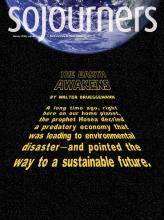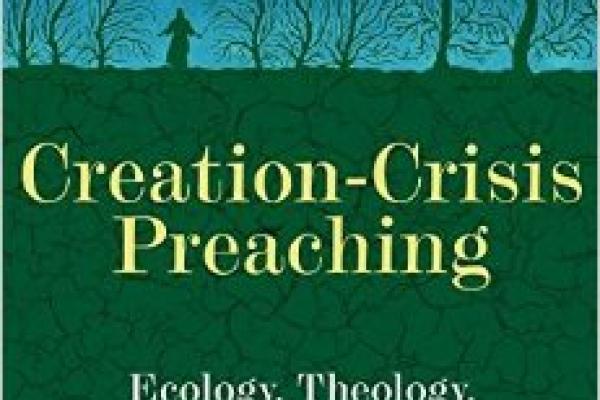PREACHING A SERMON on an issue debated in the public square: It’s complicated. Make that issue the climate crisis, and it’s really, really complicated. Even in congregations where climate change is not broadly disputed, a pastor faces the challenge of crafting a gospel-informed message that doesn’t swing either to naïve ways we might “make it all better” or pessimistic apathy.
But there’s evidence it’s worth the work and risks: In terms of policy issues, climate is one where a clergy leader’s word has proven impact. According to a 2014 survey by the Public Religion Research Institute and the American Academy of Religion, Americans with a clergy leader who “speaks at least occasionally about climate change” are more likely to be concerned about the issue than those “who attend congregations where the issue is rarely or never raised.”
So where does a preacher begin and with what goals?
Leah D. Schade’s Creation-Crisis Preaching equips pastors to name the present crisis and preach a call to action and healing. She describes one theological path to sermons infused with both testimony of the sacredness of God’s creation and our call to be agents of the world’s healing. Schade is a Lutheran pastor and anti-fracking activist who has also done doctoral work focused on homiletics and ecological theology. Appropriately, in this book she explores both the theoretical underpinnings and the practicalities of climate-crisis preaching. Her approach is clear-eyed about the current dire situation of creation, but also committed to hope: “Because I am a Lutheran homiletician,” she writes, “I am compelled to find a way to preach the eco-resurrection, even when most signs indicate that Good Friday may be the fate of our planet.”
Schade sketches the sometimes contentious and damaging history of religion’s relationship to the environment, some different approaches to ecological theology, and a “‘green’ hermeneutic for interpreting scripture.” She explores briefly how social change theory can inform the vocation of preaching and the role sermons might play in a social movement.
Read the Full Article

